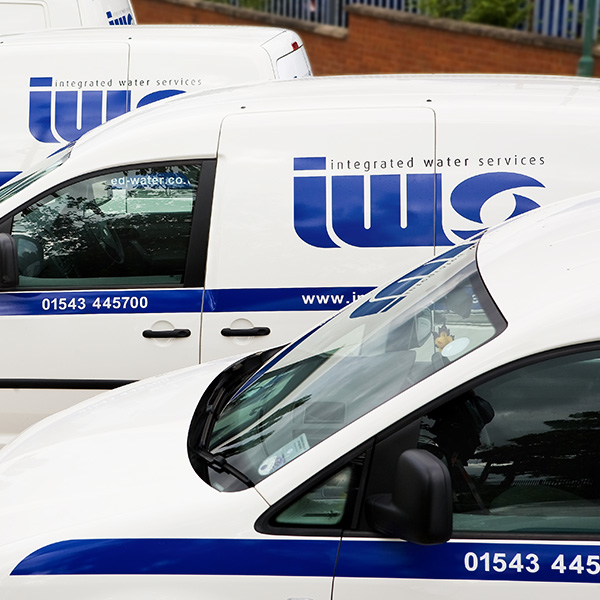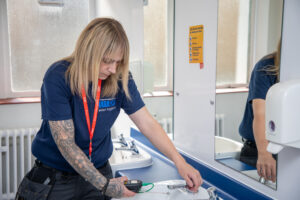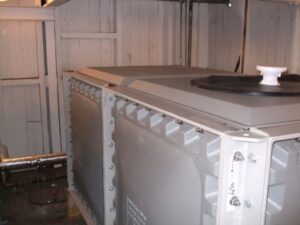A Care Services NHS Trust (the NHS Trust) provides community healthcare and adult social care for the people residing in the South West. Within their portfolio are seven community hospitals and fifteen other community healthcare sites of varying size. Due to the nature of the healthcare environment, the NHS Trust would arguably have a section of the population attending the sites that are in a greater immuno-compromised state than the natural spread of the population. When people are immune-compromised they are more susceptible to infection by external pathogens, such as the Legionella and Pseudomonas type bacteria. When dealing with healthcare environments, it becomes pertinent to ensure that precautions are taken to help ensure the risk posed by such pathogens is reduced. In order to help health authorities comply with this, there are a number of documents and legislation they can turn to in order to help achieve compliance, notably Health Technical Memorandum (HTM) 04- 01, Approved Code of Practice L8 4th edition, HSG 274, HTM 01-05 and D08. With large multiple site authorities, it may become necessary to seek outside help in order to ensure that the compliance tasks are carried out to a satisfactory standard; this is indeed the case for the NHS Trust who, due to a large number of compliance tasks for legionella control alone, do require support from an external organisation.
With large multiple site authorities, it may become necessary to seek outside help in order to ensure that the compliance tasks are carried out to a satisfactory standard; this is indeed the case for the NHS Trust who, due to a large number of compliance tasks for legionella control alone, do require support from an external organisation.
Within this contract, IWS are responsible for the following tasks:
- Monthly temperature monitoring of hot and cold sentinel outlets and 10% of hot and cold representative outlets
- Monthly temperature monitoring of calorifier and water heater flow and return temperatures
- Quarterly showerhead clean, descale and disinfection
- Six-monthly cold water storage tank temperatures
- Six-monthly TMV failsafe testing
- Annual calorifier blowdowns, calorifier inspections and TMV service
Technical Ability
The operatives carrying out works on the NHS Trust have been given site-specific training to become accustomed to procedures within this NHS Trust; for example infection control and the procedure for entering into rooms and wards and the purpose of red counters outside rooms. At a role-specific level the following standards of qualifications are in place:
- Disclosure Barring Service (DBS) check/disclosure – Enhanced level
- Energy and Utility Skills Register (EUSR) – National Water Hygiene Card
- Formal Induction and training on the IWS QUENSH management system
- Minimum of formal internal training on effective control of Legionella bacteria (BS6 – City and Guilds Legionella Awareness)
Temperature Monitoring
Temperature monitoring is undertaken during this contract to HTM04-01, so the operatives are aware that the ideal requirement for hot water temperatures is above 55°C, as the HTM04-01 does mention that this is an advised temperature for decontamination purposes. The operatives working on the NHS Trust contract are also trained on the different types of TMV they will encounter, as a large proportion of them tend not to be the standard TMV valve placed prior to the outlet, rather they are more likely to be in-built to the outlet itself. There are a variety of types such as the Armitage Shanks Markwik 21 sequential mixer, the Twyford taps etc. which require varying degrees of maintenance and have different methods of operation. The authority has some 850 TMVs across their portfolio of sites which require both failsafe testing and also servicing as part of the IWS contract.
To ensure the correct operation of TMVs is vital for two reasons in a healthcare environment, firstly, for its primary function of preventing scalding and secondly to reduce the risk posed by the Legionella bacteria by ensuring that the TMVs are kept free from dirt and debris which provide potential nutrients to help encourage the proliferation of microbiological activity.
Collaborative Working
As part of the HTM04-01, the NHS Trust need to be able to carry out flushing of outlets as part of a daily cleaning cycle, but also when there are temporary area closures etc. this should be done on a twice weekly basis for three minutes per outlet. Flushing of little used outlets plays a large part in helping to reduce the conditions which are conducive to the proliferation of bacteria. When outlets are not used frequently, the water becomes stagnant, providing the low flow conditions bacteria can utilise in order to colonise surfaces, and potentially lead to the secretion of extracellular polysaccharides which form a matrix, commonly known as biofilm. Once biofilms are established, they can be extremely difficult to remove, due to the increased resistance they provide to antimicrobial action. IWS work with the NHS Trust in order to create the flushing record documents containing all of the potential assets which need flushing so that the NHS Trust can provide the information to the relevant people at each site in order to ensure that they get completed.
Regular contract review
IWS and the NHS Trust have a monthly meeting at which point exception reports from the monitoring visits are reviewed. The meeting also provides the ideal opportunity to look into other remedial actions which need to be considered. This open and honest approach will ensure the continued success of the contract.




